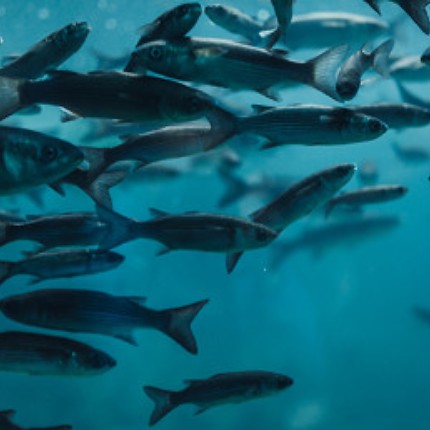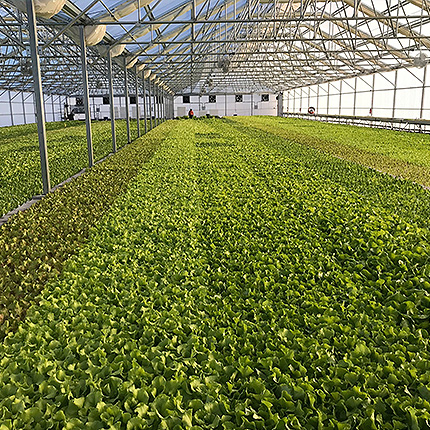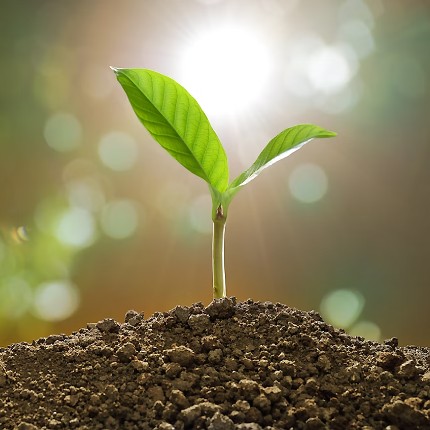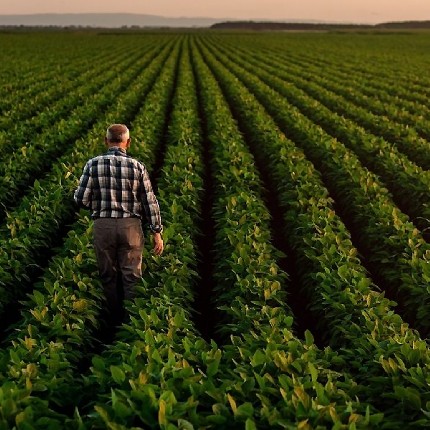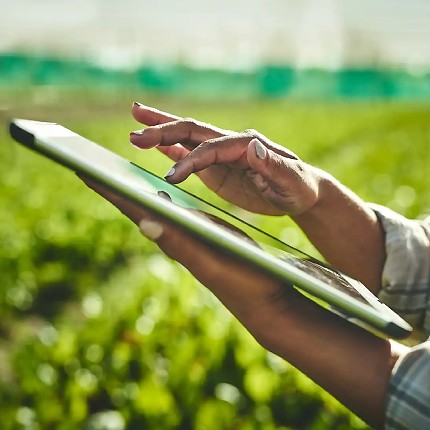At Organigogo, we are passionate about promoting ecologically sustainable practices in aquaculture and agriculture without passing judgment on existing production methods. Our mission is to address the global critical imbalance in ecological aquaculture production, recognizing its near absence and its profound impact on ecosystems and climate change exacerbation.
Building Bridges for Positive Change
Our approach is rooted in building bridges for improvement, not in attacking or criticizing current practices. We understand producers' challenges due to limited access to technology, knowledge, or resources for organic production implementation. Through awareness-raising and offering support, we aim to facilitate a transition towards ecologically sustainable production without generating conflicts.
Supporting Progress and Innovation
We acknowledge the multifaceted roles that conventional, super-intensive, or industrialized productions play in providing communities with essential food and cultural, economic, and social benefits. Our initiative does not aim to replace these methods magically; instead, we seek to present ecological production alternatives as complementary options for a sustainable future.
Honoring Producers' Efforts
As a team comprising producers with firsthand experience of the challenges in modifying production methods, we recognize and appreciate the dedicated efforts of aquaculturists and farmers in all production methods. We refrain from qualitative judgments or criticisms and focus on offering support and alternatives for ecological production.
Collaboration for a Sustainable Future
Our commitment lies in presenting ecological production possibilities urgently needed in the face of climate change and ecosystem preservation imperatives. We believe that critiques are only meaningful when accompanied by constructive proposals for improvement, and our goal is to assist producers in transitioning toward ecologically sustainable practices.
Establishing and Escaling with Human and Tech Support
We aim to establish and scale organic aquaculture utilizing inputs from organic agriculture—a complex endeavor involving multiple species and diverse scenarios. Our approach involves transferring knowledge solutions tailored to specific species while continuously enhancing and increasing our capabilities to support a wider variety of organic aquaculture species. By transferring knowledge and skills through a technological platform supported by human expertise, we aim to promote sustainable and organic farming practices. This strategic approach addresses the growing demand for food and minimizes the environmental impact, ensuring a harmonious balance between agricultural productivity and ecological preservation.
We aim to accelerate the establishment and scaling of pollution-free, organic aquaculture
Our approach to achieve this involves:
- Utilizing inputs from organic agriculture: By integrating organic practices, we ensure a sustainable and environmentally friendly approach.
- Developing large-scale aquaponics modules: This innovative tech treats residual water, promoting pollution-free production and minimizing environmental impact.
- Democratizing knowledge through a tech platform: Our platform, backed by human expertise, transfers knowledge and skills to farmers. This empowers them to successfully adopt and scale organic aquaculture, regardless of their experience.
Organigogo's promoted initiatives, including Acquakinetic, Orgakinetic, Ecofarmit, and Organitum, can play a vital role in addressing the significant gaps in technology, production, knowledge, and skills needed for more ecologically sustainable food systems. By tackling these obstacles, our initiatives can contribute to solving the challenges of feeding a growing population within environmental constraints and promoting sustainable food production. Here's how each initiative can help mitigate or address the highlighted issues:
Feeding a Growing Population
Organic Aquaculture and Agriculture Practices: Orgakinetic and Ecofarmit can facilitate the adoption of more sustainable and organic farming practices. By promoting eco-friendly and organic cultivation methods, these initiatives can help meet the rising food demand while minimizing environmental impact.
Global Demand and Environmental Impact
Resource Optimization: Acquakinetic's focus on water recycling and efficient usage can help reduce the strain on freshwater resources. By optimizing water management in aquaculture and agriculture, Acquakinetic can contribute to reduce the environmental impact of food production.
Paris Agreement and Environmental Sustainability
Climate-Friendly Practices: Organitum's emphasis on promoting organic farming and climate-smart agriculture aligns with the objectives of the Paris Agreement. By supporting sustainable and environmentally friendly practices, Organitum can aid in mitigating climate change effects and reducing greenhouse gas emissions in food production.
Aquaculture and Sustainability Challenges
Responsible Aquaculture Expansion: Acquakinetic and Ecofarmit can support organic aquaculture practices. By addressing the environmental challenges associated with aquaculture expansion, including land and water usage, these initiatives can help ensure the responsible growth of the aquaculture sector.
The Feed Dilemma
Promotion of Plant-Based Feeds: Orgakinetic and Ecofarmit can advocate for the shift towards plant-based feeds in aquaculture-specific species. By promoting the use of sustainable and aquatic plant-based ingredients in fish feeds, these initiatives can help reduce reliance on fishmeal, alleviate overfishing pressures, and minimize environmental impact.
Industrialized Agriculture and Sustainability Challenges
Transition to Sustainable Practices: Orgakinetic and Ecofarmit can support transitioning to more sustainable and environmentally friendly agricultural practices. Promoting organic farming methods and reducing the reliance on industrialized agriculture practices, these initiatives can contribute to mitigating deforestation, land degradation, and water scarcity issues associated with large-scale production.
Organigogo's initiatives can directly contribute to addressing the complex challenges of feeding a growing population sustainably within environmental constraints. By promoting ecologically sustainable practices, resource optimization, and responsible aquaculture expansion, Organigogo helps ensure food production's long-term viability while balancing the needs of a growing population with environmental preservation.
Empowering Farmers in Organic Aquaculture
Organigogo, drawing from experience and successful negotiations with buyers, can leverage its expertise to help farmers navigate the challenges inherent in establishing and scaling organic aquaculture operations. Here are several ways Organigogo can assist farmers to avoid going through these challenges alone
Knowledge Sharing and Guidance
- Organigogo can share best practices, lessons learned, and insights gained from its journey in organic aquaculture with farmers looking to adopt sustainable practices.
- Guiding regulatory compliance for 3rd party organic certification processes, organic aquafarming methods, and market trends can help farmers make informed decisions and align their practices with standards.
Market Access and Networking
- Networking Opportunities: The Organigogo platform is being built to connect farmers with potential buyers and industry professionals. This will allow for direct interaction and relationship building.
- Approaching Buyers Effectively: Organigogo can provide training programs or resources that teach farmers effective communication and negotiation techniques when approaching retail buyers. This can include guidance on product presentation, highlighting the value proposition of organic aquaculture, and understanding buyer needs.
Supply Chain Integration
- Organigogo can assist farmers in optimizing their supply chains by providing insights on efficient production methods, quality control measures, and packaging requirements to meet buyer expectations.
- Organigogo aims to help organic aquafarmers streamline their operations and enhance product quality and consistency by ensuring seamless logistics and traceability from farm to market.
Training and Capacity Building
- Offering training programs, workshops, and mentorship opportunities, Organigogo can empower farmers with the knowledge and skills necessary to transition to organic aquaculture successfully.
- Providing ongoing support and resources on sustainable farming techniques, environmental stewardship, and organic certification processes can equip farmers with the tools to navigate the industry's complexities.
Advocacy and Representation
- Acting as an advocate for ecologically sustainable farming practices, Organigogo can raise awareness about the benefits of organic aquaculture and champion the interests of farmers within the industry and regulatory bodies.
- Organigogo can promote ecologically sustainable initiatives and create a supportive ecosystem for the growth of organic aquaculture by representing the collective voice of organic aquafarmers.
Building Producer Capacity
Standardization and Certification
Organigogo can guide farmers through the process of obtaining third-party organic aquaculture certifications to ensure their products meet stringent quality standards. Certification enhances marketability, instills consumer trust, and opens doors to premium markets prioritizing traceability and ecological sustainability.
Production Efficiency
By sharing best practices and innovative techniques, Organigogo can help farmers optimize their organic aquaculture operations for increased productivity and cost-effectiveness. Improving production efficiency boosts yields and reduces environmental footprint and resource usage.
Guiding to the Establishment of Cooperative Structures
Organigogo can empower farmers to collaborate, pool resources, and collectively negotiate better terms with retailers by guiding the establishment of rural organic producer cooperatives. Cooperative structures enable shared investments in machinery, processing facilities, and marketing efforts, enhancing the overall competitiveness of small-scale producers.

